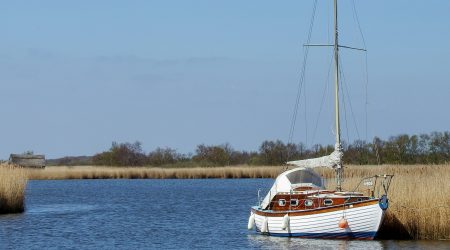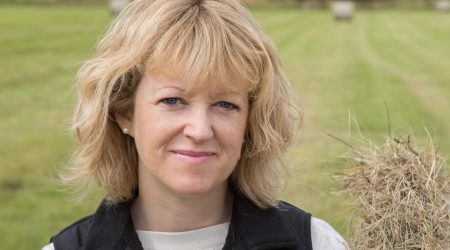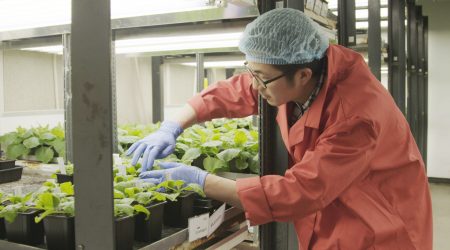Professor Dame Caroline Dean – who is a 2018 L’Oréal-UNESCO for Women in Science laureate – reflects on a memorable message
“Excellence, then relevance. That was the constant message from the former Chief Executive at BBSRC Professor Julia Goodfellow in the late 90s. This fits well with the mission of the John Innes Centre – excellent fundamental research in blue-sky areas relevant to plant and microbial science, then maximising the impact of the new discoveries for societal good.
It is not always easy to predict what science will open new strategic opportunities. For example, who would have thought that the international genome sequencing project for Arabidopsis thaliana, which is not a crop, a pest or a pathogen, would be one of the most strategically important projects in plant science of the last 15 years? And it was coordinated by scientists from the John Innes Centre.
Professor Goodfellow’s message has been very influential in my own research. As a postdoctoral researcher, there is always the question of what to work on when you get your own independent lab.
I was a postdoc in California in the 1980’s and I missed the noticeable seasons of my home in the north of England. I was intrigued by the different behaviour of the plants and began to investigate why. Then there was a moment that cemented my interest. I bought some tulip bulbs, and the man who sold them to me said,
That moment led me to my long-term research question of how plants align their development with the seasons.
So, when I applied to work at the John Innes Centre (30 years ago), I proposed to work on vernalization – the requirement for prolonged cold for flowering. Commercial plant breeders have exploited this process to generate winter– and spring-sown varieties, but when I started we had no clue as to the molecular mechanism.
It was the beginning of the arabidopsis era with the potential of cloning genes based on map position, with no other knowledge. They offered me the position and I arrived on 2 September 1988.
I began with three research questions;
- Why do some varieties not flower until they have had cold?
- How does the plant know it’s had prolonged cold?
- And how have those molecular mechanisms enabled adaptation to different climates – arabidopsis grows over a large range – from Cape Verde near the equator to northern Sweden?
All three questions led to a focus on the regulation of a single gene, Flowering Locus C (FLC). FLC acts as a brake to flowering, so if the plant is making the FLC protein, it won’t flower.
Conserved mechanisms regulating FLC expression, involving non-coding RNAs and chromatin (the interwoven DNA and protein that makes up our chromosomes), lie behind all three questions we had posed: how much the gene is expressed affects whether plants need to overwinter.
Winter is registered by progressively switching off the gene in more and more cells. Adaptation is the result of small changes that affect the regulation of the gene.
So, after 30 years, my research has come down to a very detailed study of basic principles of gene regulation, important for human genes too. Instructions are given to genes in the embryo (human or plant), but the initial instructions don’t stay around all the time; instead the instruction is remembered. The memory is passed down from mother to daughter cells by epigenetic regulation – through non-coding RNA and chromatin regulation.
Epigenetics is being discussed everywhere at the moment – in the context of how the environment affects our genes. When memory mechanisms go wrong and genes turn on and off in the wrong place, disease is the result: most cancers carry genes expressed in the wrong place.
What is also amazing is that we can now build on our understanding of the vernalization mechanism in arabidopsis to help plant breeders to produce commercial plant varieties that will respond to winter temperatures in predictable ways. New varieties could flower earlier, or be resistant to cold snaps, where previously premature flowering led to a glut of certain varieties at the supermarket.
That’s what the John Innes Centre is all about; discovering fundamental concepts, then translating the opportunities. Excellence, then relevance.”





